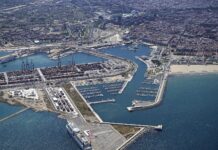
The Port of London Authority (PLA), which supervises the secure running of the UK’s largest port, has pledged to achieve Net Zero emissions by 2040, if not sooner.
Last year’s performance resulted in a 50% reduction in carbon emissions three years earlier than the initial 2025 goal.
As an interim measure, the introduction of sustainable biofuel in lieu of gasoline in its fleet of vessels was a critical first move in boosting performance.
PLA said it has over 20 vessels, including harbour service launches, driftwood collectors, hydrographic survey vessels and a large mooring maintenance craft. The initial PLA goal was a 50% decrease in the 2,054 tonnes of carbon emitted across all of its activities in the baseline year of 2014. Prior to the transition to biofuel, vessel fuel usage accounted for more than 75% of the PLA’s overall carbon pollution.
Furthermore, PLA has spent more than US$144,000 on new steel fuel containers to hold biofuel at three of its riverside sites. The most recent placement, Barrier Gardens Pier, was finished just before Christmas, solidifying biofuel as “business as usual” for the PLA.
“Overseeing safe operations in the UK’s biggest port and busiest inland waterway involves a large number of our team working out on the river. This has traditionally been carbon intensive, with vessels using diesel taking pilots to large ships, patrolling the river, recovering driftwood and maintaining aids to navigation,” stated Robin Mortimer, PLA chief executive.








